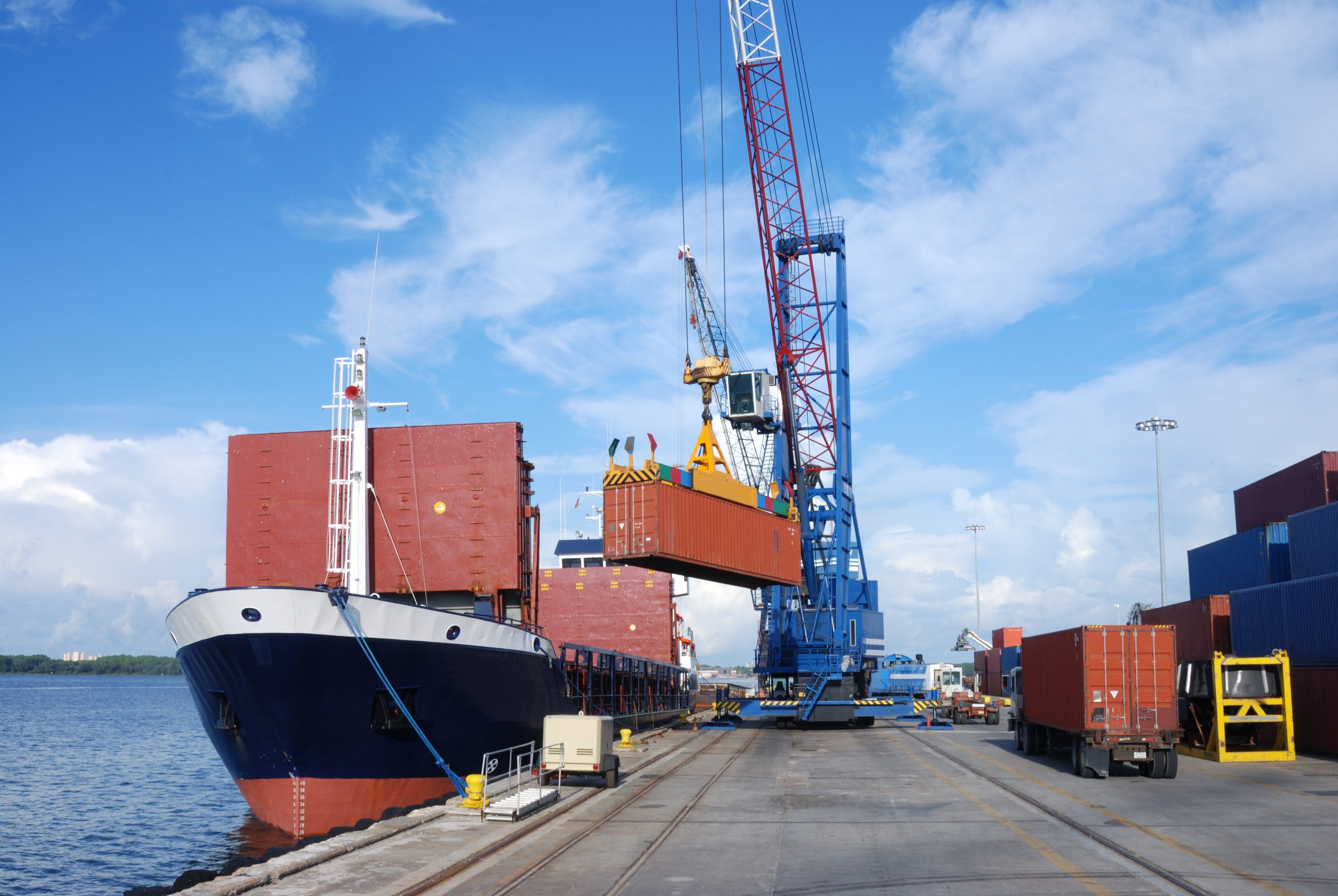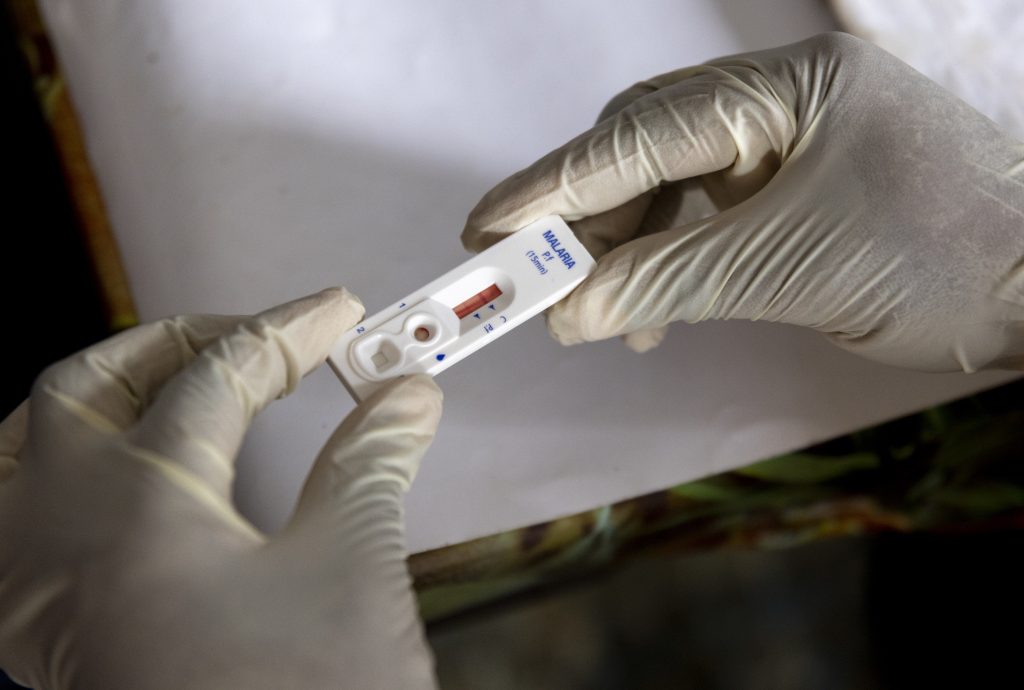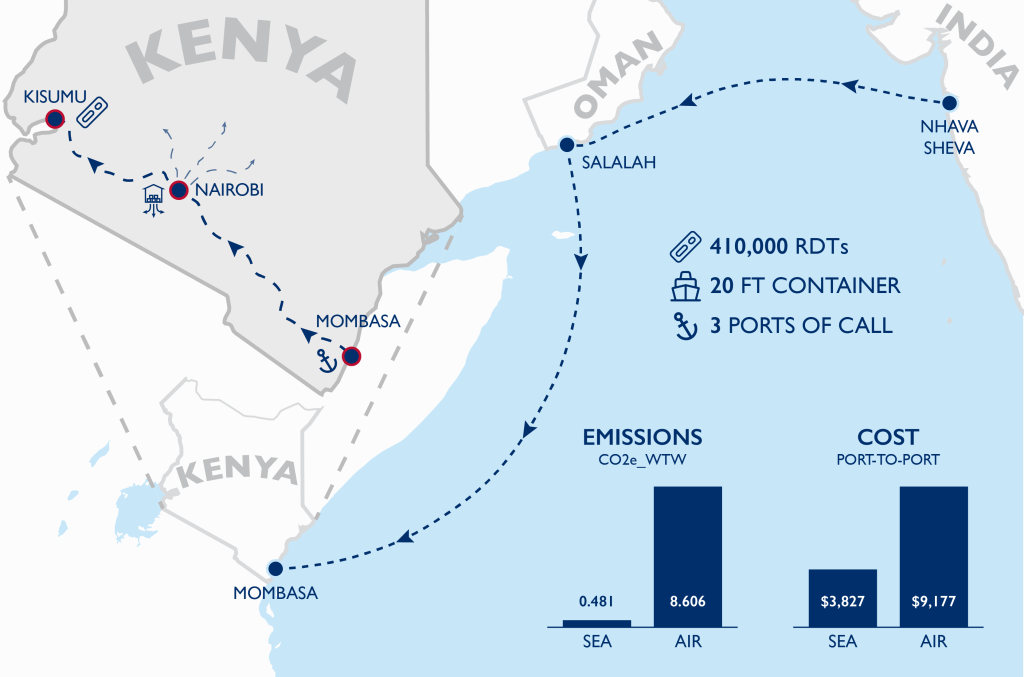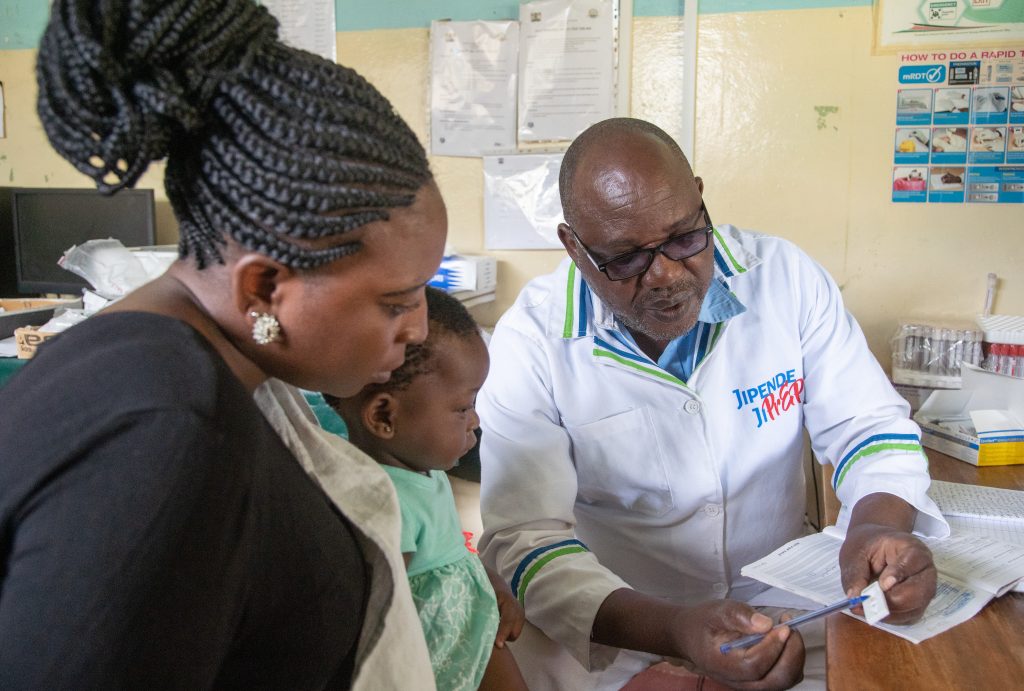How big is the carbon footprint of a rapid diagnostic test for malaria? This is among the many questions PMI and our partners are asking as climate shocks and changing weather patterns threaten to undo decades of progress – and U.S. investments – in malaria control and elimination.
This small but mighty tool – roughly the same size as an at-home COVID-19 test – travels the world to determine within 20 minutes whether someone has malaria. Rapid diagnostic tests are administered by health workers everywhere from major urban hospitals to rural homes far from a health facility. And thanks to a major shift in PMI’s procurement strategy, the carbon footprint of a malaria test procured by PMI is smaller than it has ever been.
Taking a closer look at the journey of a single shipment of rapid diagnostic tests, the impact of these shifts becomes clear. Manufactured in India, the tests travel by ocean freight to Oman and Mombasa, Kenya, then overland by truck to Kenya’s National Malaria Control Program’s central warehouse in the capital of Nairobi. The same journey by air for this one shipment would have produced 17 times more emissions and cost more than twice as much.
From Nairobi, the tests are distributed to warehouses throughout the country, including in Kisumu in Western Kenya, before making their final journey to health facilities and into the hands of the patients who need them most, like 11-month-old Janine whose mother brought her to Railways Dispensary when she started exhibiting malaria symptoms. With the help of the rapid diagnostic test, patients like Janine can be quickly tested and then immediately start treatment if they test positive for malaria.
From 2019 to 2023, PMI transitioned from primary reliance on air freight to using ocean and land freight to transport select malaria prevention and treatment commodities, including rapid diagnostic tests and antimalarial medicines. This effort resulted in $66 million in cost savings and an 85 percent reduction in transportation-related greenhouse gas emissions.
PMI is also investing in local manufacturing of medical commodities. Shifting production closer to demand on the African continent reduces emissions, promotes a climate-resilient health system, and advances global health security.
To achieve our shared vision of a world free of malaria, PMI and our 30 partner countries across Africa and the Mekong Subregion are taking action in support of greener and more climate-resilient malaria programs.
Cover Photo credit: choicegraphx




